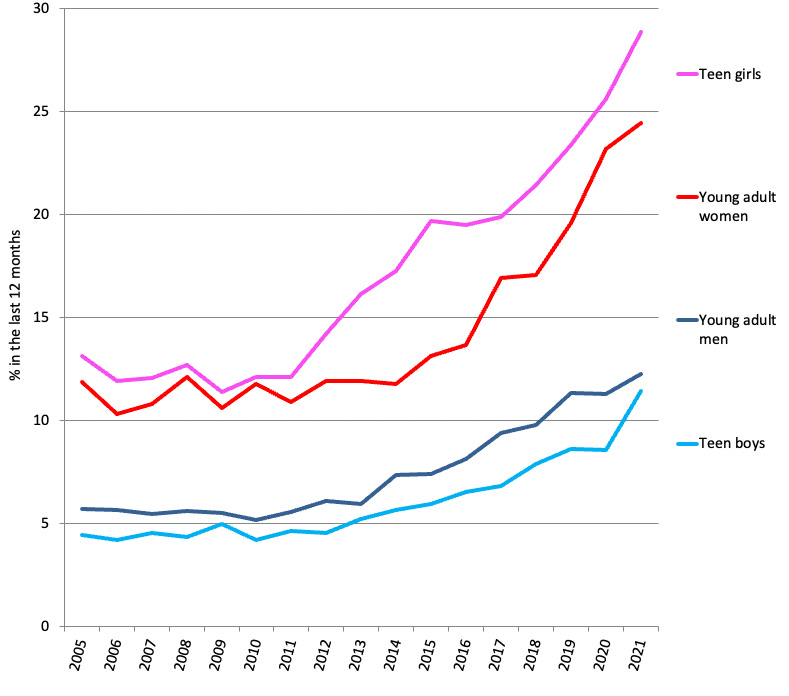About the Generation Tech Substack
Welcome to the Generation Tech Substack. I’m a personality and social psychologist who studies generational differences and technology use, and I’m a professor at San Diego State University. My two most recent books are Generations (2023) and iGen (2017). My website, with more information on my research, books, and speaking, is here.
Generation Tech
We are living in a time of sweeping technological change. What impact does that have on us as humans? And what does it mean for being a parent today?
New technologies change the lives of people of all ages, but they have a transformative effect on young people who have never known another world. That is especially true right now, when we’re in the middle of a vast natural experiment on our kids, teens, and young adults. Gen Z and the younger Polars right behind them have fundamentally different childhoods than the generations before them: They spend much more time online and much less time in the “meatworld” of in-person social interaction and outdoor activity.
The result? An epidemic of depression among the young.
Figure: Percentage of U.S. teens (ages 12-17) and young adults (18-25) with clinical-level depression
Source: National Survey on Drug Use and Health
Depression has also started to move up the age scale, with increases among young Millennials as well (I explored this in a guest post on Jonathan Haidt’s After Babel Substack). Overall, there are signs that dissatisfaction, negativity, and pessimism are growing not just among the young but across all ages.
What I’ll focus on
In the Generation Tech Substack, I’ll explore questions such as:
— How do we know the rise in depression is due to smartphones and social media, and not other factors?
— Is there a connection between depression and spending more time on social media?
— What can parents do to help their kids and teens navigate technology?
— What public policies would better protect kids and teens online, particularly on social media?
— Why is the national mood in the U.S. so negative?
In Generations, I argue that technology is at the root of generational differences — it is the primary reason why living now is so different than living 200, 100, 50, or even 20 years in the past. So I might, on occasion, also address the downstream impacts of technology and cultural change, including a slowed life cycle, more individualism, work attitudes, birth rates, culture clashes, and shifts in politics.
Welcome, and thanks for your interest in figuring out this strange cultural moment we’re living in — and our kids are living through. Together, I hope we can figure out how to make it better for everyone.
Jean M. Twenge
Why subscribe?
Subscribe to get full access to the newsletter and all posts. Never miss an update.
Stay up-to-date
You won’t have to worry about missing anything. Every new edition of the newsletter goes directly to your inbox.
Join the crew
Be part of a community of people who share your interests.
To find out more about the company that provides the tech for this newsletter, visit Substack.com.



